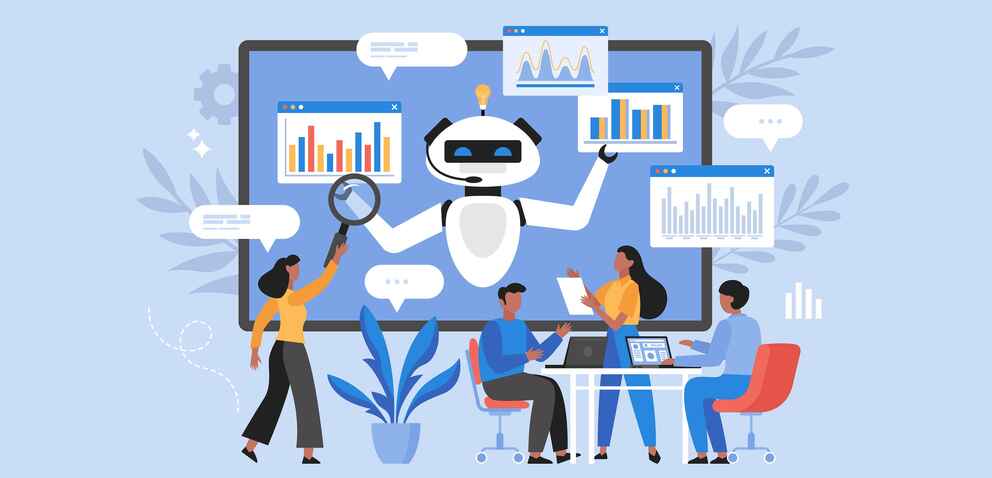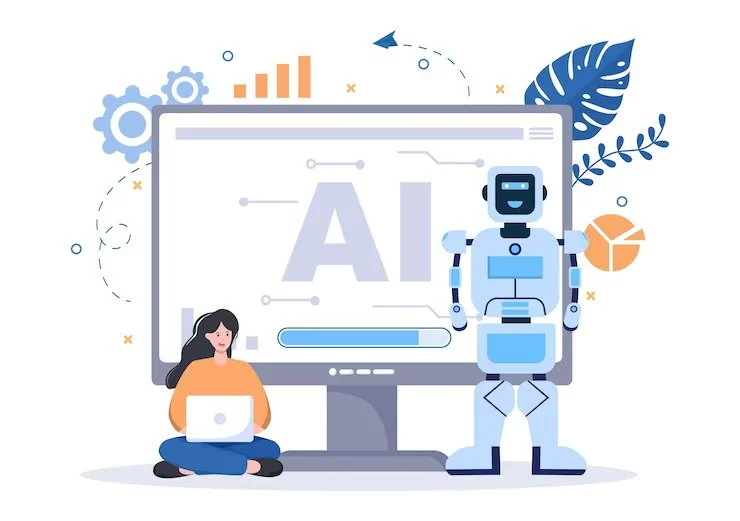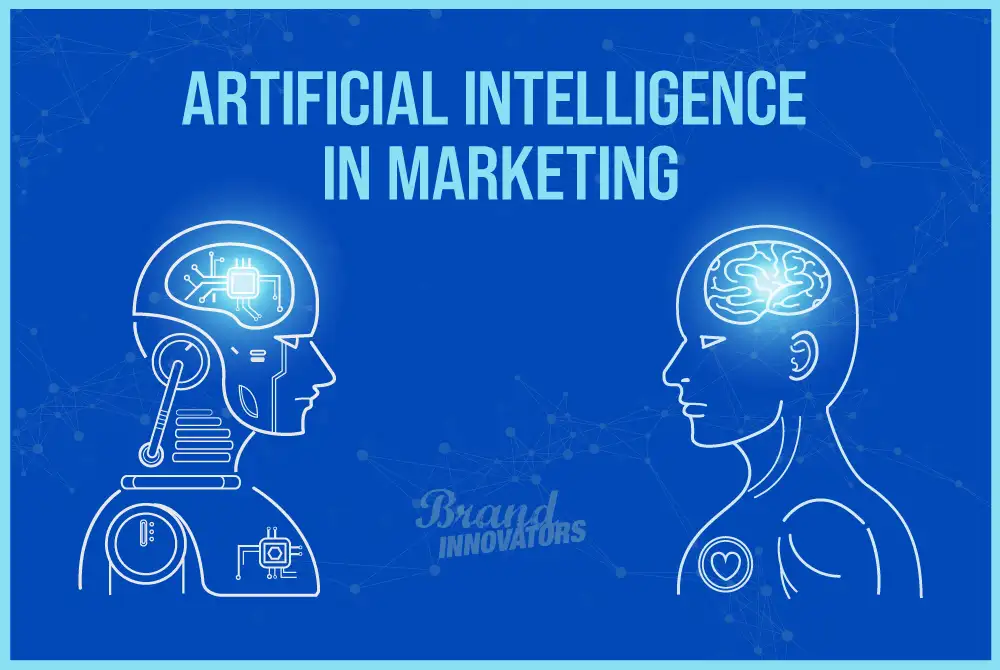Imagine you’re scrolling through your feed when an ad pops up. It seems normal, but there’s a catch: an AI-created influencer is behind it, leveraging data in ways that raise eyebrows. As experts in the dynamic world of digital marketing, we’re diving headfirst into the hot topic of data privacy concerns in AI-powered influencer marketing. You need to understand the minefield you’re navigating to protect your personal info while still enjoying the perks of AI-guided content. From the latest AI advancements to the ethics shaping them, you’ll get a clear roadmap for keeping your data safe in the era of AI influencers.
Understanding AI Influencer Marketing and Privacy Concerns
Exploring AI influencer marketing privacy issues
When you hear about AI influencers, think of digital stars. They seem real but are made by computers. Brands love using them for ads. But, here’s the kicker: they often know a lot about you. Imagine a friend who remembers every chat. AI can do that with data. Sometimes more than it should. This is big for privacy. We ask: Is my data safe? Who has it? How is it used? These are the core worries.
AI uses things like your likes and web visits to figure out what you may buy. It’s clever but also scary. You might wonder, “Where’s my data going?” Sadly, it can end up in places you never said yes to. We need strict rules so data doesn’t get misused. This keeps your info safe and makes sure AI plays fair. So, we push for strong data protection and clear privacy policies.
The intersection of consumer data protection and AI
Now, let’s get real about keeping data safe with AI in the mix. It starts with rules. Think of GDPR – it’s a big law in Europe that guards your data. It tells companies to handle data like it’s secret. Only collect what you need, they say. And only if people agree to it. This is big for respecting your choices online.
There are cool tech ways to shield your info, too. Like turning data into codes (that’s encryption) or making it anonymous (we call this anonymization). These tricks help keep your details a secret, even if bad folks get them. Plus, AI needs to be crystal clear about what it’s doing. That’s AI transparency. We all have the right to know how our info is used. And if something’s off, there should be a way to fix it.
Protecting your data is key when we blend AI with marketing. As an expert, I dig deep into these tech puzzles. I ask the hard questions and find ways to keep your chats with digital pals safe and sound. We’ve got to march on for your data rights, making AI smart but not sneaky.
Ethical and Legal Frameworks in AI-Driven Endorsements
GDPR compliance in AI influencer campaigns
We all worry about keeping our personal info safe. In AI influencer marketing, this is huge. GDPR helps with that. It’s a tough rule in Europe that keeps our data safe. It says companies must tell us what they do with our info. They also have to keep it safe. If they mess up, they can get in big trouble. It affects AI influencer campaigns big time. They need to check everything they do follows GDPR. This means they must keep your data safe and not misuse it. They also need your okay to use your data. And you can ask them to stop using it or to tell you what they have on you.
Now, GDPR is not just a Europe thing. Companies outside Europe must follow it too, if they deal with folks in Europe. This keeps our data safer, no matter where we are. It helps stop our details from being used the wrong way. It also makes sure that if companies use AI to suggest stuff to us, they keep our secrets safe.
Ethical concerns in AI endorsements
When we talk about AI endorsements, ethics is big. Ethical concerns look at what is right or wrong in AI saying yes to products. We must be smart about how AI might trick us. AI influencers should not fool us into thinking they are real people. We should know if a post is from a computer or a human. It’s not fair if we get duped.
Another big worry is that AI knows too much about us. It can guess what we like and use it to make us buy things. This can feel like we have no say. It’s like our choices are not really ours. Big companies use what we like, what we do, and even our friends to sell us stuff. We need rules to keep AI honest and on our side.
We need to think about facial recognition too. It can spot you in photos and might use this without your okay. That’s not fair. We should agree before our faces get used to sell things.
Then there’s data security. AI must protect the info it gets. We’ve heard of data breaches. They are when secret details get out. It’s like someone sneaking into a locked room. Scary right? We don’t want our stuff stolen.
And then we have targeted ads. They track us across the web, showing things they think we will buy. It uses our data to make guesses about us. This can feel creepy, like someone is always watching.
So, AI can be cool but also kind of scary if not done right. We need to make sure it stays on the good side. Keeping your data safe and making sure you’re okay with how it’s used is top priority. It’s all about trust and being clear. Otherwise, AI influencer marketing could lose our trust fast.
Remember this, your data is yours. AI influencer marketing should always protect it. You should have the power to say yes or no to how it’s used. Always stay sharp and ask questions. This way, we can keep the fun in AI and stay safe doing it.
Risks and Challenges of AI-Generated Content
Artificial intelligence privacy risks
When AI steps in to help market products, watch out! It can get tricky, fast. You might think, “Cool, an AI knows what I like!” But there’s more under the hood. Your likes, dislikes, and secret late-night shopping sprees? AI influencer marketing tools may know all about them. That’s where we hit a snag. What happens to your personal data during AI marketing?
Let’s peel back the curtain a bit. When AI makes content, it sometimes uses your personal info. People like you and me may not even know it’s happening. That’s a big no-no. We deserve to know where our info goes. Right?
For instance, you see a fitness ad after you search for workout tips. Coincidence? Maybe not. AI tools cleverly learn from what you look for online. They use this to show ads that hit the bull’s eye, just for you. This can be handy, but it can also step over the line. Where’s the privacy if AI is always peeking over your shoulder?
Facial recognition software concerns
Now let’s talk about looking at faces. Yes, even your face! Facial recognition is a smart tool that can spot you in photos and videos. It might seem like magic, but it’s not always a good trick. Imagine walking by a store and a camera knows it’s you. Then, an ad pops up, calling you by name. Creepy? You bet!
Some folks use facial recognition to offer deals or ads. It’s like a robot that says, “I know you, so buy this!” But where does it end? What if that info gets loose? Bad people might get it and misuse it. That’s scary!
Using your face to push products raises big questions. Are they keeping your face data safe? Who else sees it? Are they asking you first? Your face, your rules. That’s how it should be.
We’ve got to keep AI honest and safe. For everyone. That means making sure AI influencer marketing plays by the rules. The rules need to be clear and fair. And, hey, companies should not just say they care. They’ve got to show it with action!
So, folks like me work on this stuff. We check and double-check that AI tools respect your privacy. We help write rules to keep AI in check. Remember, when AI and marketing mix, let’s keep it real – real private, that is. We’re all in this together. Let’s make sure AI helps us without taking what’s ours.
Safeguarding Consumer Rights in AI-Marketing
Implementing user consent protocols in AI technologies
In AI influencer marketing, getting permission is key. You’ve seen those pop-ups on sites asking if they can use your info? That’s user consent in action. Now, with AI tech getting smarter, this step matters even more. When we use AI tech, we should always make sure it has clear ways to ask for and get your “yes” to use your data. It’s like asking, “Hey, can I borrow this?” before taking something off your desk.
AI systems can learn from data to predict what you’ll like or buy. But here’s the deal: they must not grab your info without your say-so. We call this user consent. It’s not just about being polite; it’s about your rights. When AI gets your “thumbs up” first, you stay in control.
To make this work right, we need good rules in place for AI technologies. When creating new AI tools, developers should think about your privacy from the start. And these rules should be easy to find and get. You should not need a magnifying glass to read them!
With AI, it’s not just about clicking “I agree” on a long, boring form. It’s about really knowing what you’re saying “OK” to. And if you change your mind? You should be able to say “No more, please!” anytime. That’s respecting your rights.
Privacy by design in AI systems
“Privacy by design” sounds fancy, but it’s simple. It means when people make new AI stuff, they should think about keeping your secrets safe from the very start. It’s like building a car but making sure it has seatbelts before it hits the road.
With AI influencer marketing, we’ve got lots of personal data flying around. So, privacy by design is super important. It stops your info from ending up in the wrong hands. Think of it like a secret club. The club has a secret handshake that keeps out anyone who’s not supposed to be there. Privacy by design works just like that, but for your data.
For example, when AI is used to tell which ads you see, privacy by design helps make sure only the right bits of info are used. This stops awkward things—like ads for that toy you bought once as a joke—from popping up all the time.
It’s like making a cake. Instead of throwing in everything from the fridge, you choose the right ingredients for a great cake. AI systems should do the same with your data—pick only what’s needed and keep it safe, like the perfect cake recipe.
So, when AI developers use privacy by design, they’re not just following rules. They are making sure the tech cares about you. Your secrets aren’t just slipping out like coins from a hole in your pocket. They’re locked up tight, and that’s the way it should be. Your data is precious, just like your trust. And in the bustling world of AI marketing, trust is the gold we all need to hold onto.
In this post, we’ve delved into AI influencer marketing and the privacy issues it brings. We looked at how protecting consumer data intersects with artificial intelligence. We also touched on the ethical and legal sides of AI endorsements and the need to follow rules like GDPR.
AI-generated content brings risks, including privacy threats from facial recognition software. To protect folks, we need solid consent rules and to design AI systems with privacy in mind.
My final thoughts? While AI in marketing is exciting, we can’t forget that real people are behind the data. Let’s use AI wisely and care for everyone’s privacy. Keeping this balance will make sure that AI helps rather than harms.
Remember, when you step into AI marketing, you hold a powerful tool. Use it with care and respect for each person’s rights. That’s the path to success in AI influencer marketing and upholding privacy. Let’s lead the change and set examples for others to follow.
Q&A :
How do data privacy concerns affect AI-powered influencer marketing?
Data privacy concerns in AI-powered influencer marketing revolve around how personal data is collected, used, and protected when influencers are promoted using artificial intelligence tools. Because AI often requires vast amounts of data to operate effectively, there’s a risk of breaching user privacy through unauthorized data access, misuse, or improper data handling.
What steps can influencer marketing firms take to ensure data privacy in AI applications?
Influencer marketing firms should implement stringent data protection measures such as encryption, anonymization of personal data, and robust access controls. They must also comply with relevant data privacy laws like GDPR, obtain explicit consent from data subjects, and educate influencers and staff on privacy best practices.
Are consumers at risk of data misuse in AI-driven influencer marketing campaigns?
Yes, consumers may be at risk if their data is collected or processed without consent, or if the data is used for unintended purposes. There’s a potential for misuse of personal preferences and behavioral data gleaned from AI-driven analytics, which can lead to privacy invasions or unwanted targeted marketing.
How does AI technology in influencer marketing raise data privacy concerns?
AI technology raises data privacy concerns in influencer marketing by its ability to analyze vast amounts of personal data to personalize promotions. This could lead to unauthorized profiling, and targeted content might inadvertently disclose sensitive information about individuals, elevating privacy risks.
What regulations govern data privacy in AI-powered influencer marketing?
Data privacy in AI-powered influencer marketing is governed by various regulations, depending on the region. Examples include the General Data Protection Regulation (GDPR) in the European Union, the California Consumer Privacy Act (CCPA) in the United States, and other similar privacy laws worldwide that dictate how personal data should be handled and protected.






